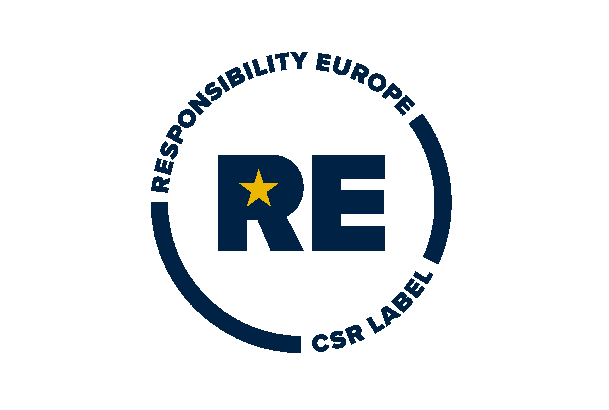What is the potential benefit of a CSR approach?
Nowadays most people are familiar with the term Corporate Social Responsibility (CSR), but not everyone is aware that this actually spans three aspects: social, economic and ecological.
Every company can and should play a role in raising awareness of these aspects, because in addition to its global importance, it can also be fundamentally beneficial to the company, its employees and its working environment. In many cases, companies already operate in ways which are aligned to a CSR strategy but lack a formal structure and/or reporting and so are often unaware where and how they are already practising CSR responsibilities.
Creating a sense of belonging
Working together on CSR activities can create a sense of community and belonging, especially in smaller entities, where several employees are involved in informal roles and there is no apparent need for a formal structure such as a CSR committee. Different staff members generally take turns to organise some social events and celebrate personal milestones, such as a birthday. This type of interaction makes a vital contribution to enhancing a sense of belonging and of Team Spirit, which has been shown to increase employee loyalty and thus has a beneficial effect on the company’s durability.
Larger companies may even employ a Chief Happiness Officer or allocate time to an events committee, but the aim remains the same: to create an informal link between employees and their employer in addition to the formal link, which already exists. During the Covid lockdown many people realised that this could never be replaced by Zoom coffee breaks, even though everyone tried hard to make them a success. Humans need personal interaction to thrive whether at work or in a private context, and as everyone spends many hours at work, so a few brief elements of “fun” can really be beneficial.
Ensuring equality of opportunities
Frequently internal processes are lived rather than documented, which could result in some confusion and inadvertent discrepancies in the way staff are treated. This aspect could be reviewed and integrated into a CSR strategy to ensure the scope of human rights, such as equality of opportunities and treatment in the workplace. For example, does everyone have equal access to training and/or internal mobility, is the recruitment process managed consistently in a fair and equitable manner?
A company may not automatically associate its training strategy with a CSR policy, but in actual fact this constitutes an integral part of ensuring that staff are endowed with up-to-date skills, without which the company would be unlikely to progress and flourish.

A training strategy may also include the acquisition of specific books and/or access to online learning tools, as well as a knowledge sharing policy. For example, employees may be encouraged to write a short review of professional books they read for publication on the intranet or to provide a brief internal training session after benefitting from external training. In many companies, the HR department mostly deals with payment and other administrative issues and often does not have the time for such informal aspects, hence the benefit of delegation to the CSR team.
Supporting innovation
The ability to innovate is also very important but requires guidance in order to be a success. Even if a budget is attributed to a dedicated team, if they have not been correctly briefed as to their mission and goals, they may find it difficult to identify where to start. In contrast, if the challenge can be framed in alignment with the company’s strategy, then employees are likely to be more successful and initiatives more readily accepted and welcomed.
Taking a CSR-based focus can provide scope for highlighting progress, for example at regular team meetings, and for celebrating the desired outcome, thus, resulting in a win-win situation for the company as a whole: employees feel appreciated, because they have made a concrete contribution to the company’s success and long-term stability and the company benefits from new ideas and employees who are more engaged and committed.

Making a contribution to society
Many companies encourage their staff to become involved in pro-bono activities, but these should really be linked to the company’s main field of activity.

For example, a consulting company could offer free coaching for student start-up companies or accompany young job seekers with tips on time management and interview techniques.
This type of engagement can generate huge satisfaction among everyone involved and also make a beneficial contribution to the company’s external image. Of course, the voluntary work must be genuinely organised to benefit others and not just for marketing purposes to avoid any risk of accusations of “green washing”.
Reducing waste
In ecological terms, a company can also play an important role in raising awareness, for example by installing a water fountain to eradicate the use of plastic water bottles and by encouraging staff to use public transport.
The communication team can come up with amusing notices to encourage colleagues to turn lights off before leaving a room, to sort their rubbish correctly and so on. Each small step can result in major contributions towards reducing waste, which ultimately saves costs, benefits the environment and can also contribute to a sense of satisfaction and pride when the results are published.

Defining goals
Ideally a company should take the time to define a few goals for the year ahead, as otherwise it is difficult to measure the effectiveness of the CSR strategy. For example: how much energy has been saved thanks to the lights out campaign? How many people have benefitted from training? Has the ratio of gender equality been maintained?
This not only has the effect of underlining the success of the approach, but also provides a Marketing and Communications team with material for internal and external posts. The scope of the objectives should be adapted to the available resources, there is no point defining a wide range of ambitious goals if there is no dedicated team to implement them. By remaining pragmatic, you reduce the risk of disappointment and of adding to already heavy workloads. Of course, senior management needs to endorse the objectives and show ongoing support, as this will encourage the team to become actively involved.

A CSR strategy can result in a lot of positive outcomes without necessarily involving high costs, but the benefits need to be visible and measurable in order to ensure continued support. Nowadays there is a lot of interest in sustainability and making a difference, so it is the ideal moment to start thinking about this type of approach if you have not already done so or to reappraise your approach in time for a seasonal relaunch at the end of the summer break. Either way, we can all contribute, but we don’t always know how, so taking a company lead will often constitute a good starting point.
Corporate social responsibility is a hard-edged business decision. Not because it is a nice thing to do or because people are forcing us to do it … because it is good for our business.
CEO of Unilever, Niall Fitzgerald
WANT TO RECEIVE OUR LATEST THOUGHT LEADERSHIP CONTENT?
Related posts
 Take the Guesswork out of People Management
Take the Guesswork out of People Management
 From processes to people: achieving quality
From processes to people: achieving quality
 Daring to lead Positive Transformation: What if Positive Emotional Capital was your key to sustainable change?
Daring to lead Positive Transformation: What if Positive Emotional Capital was your key to sustainable change?
 Why hire Change management professionals? We can do it alone!
Why hire Change management professionals? We can do it alone!
 Digital Transformation and Change Management: Lessons shared in an event hosted by Cebi and MindForest
Digital Transformation and Change Management: Lessons shared in an event hosted by Cebi and MindForest



